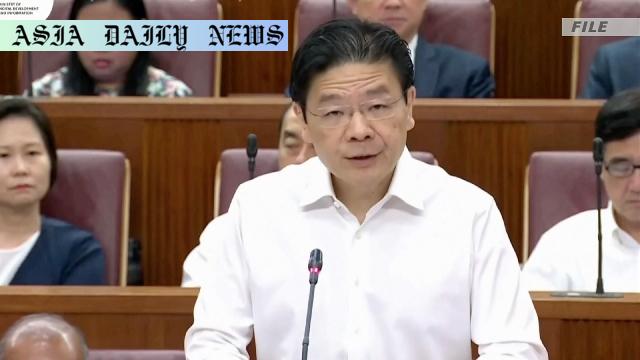Election: Singaporeans head to polls on May 3 as economy faces turbulence under new Prime Minister Lawrence Wong’s leadership.

PM Lawrence Wong Announces Landmark Election
Singapore is poised for a pivotal moment in its political history as Prime Minister Lawrence Wong announces that the general election will be held on May 3. Advising the dissolution of parliament, Wong emphasized the need for a clear mandate to navigate the growing complexities of a fragile international landscape. This election marks a new chapter for Singapore, as it unfolds under Wong’s leadership for the first time since his administration began last year. His People’s Action Party (PAP), which has firmly governed Singapore since 1965, aims to secure yet another decisive victory while managing lingering concerns from voters stemming from the previous election, where the party recorded its third-lowest vote share.
Economic Winds of Uncertainty in Focus
The election arrives amid a backdrop of economic strain that resonates deeply across the nation. As the US-China trade war continues to ripple through the global economy, Singapore has not been immune to adverse impacts. Businesses in the city-state face challenges tied to disrupted supply chains and increased tariffs. Concerns over escalating costs of living, compounded by inflationary pressures, dominate day-to-day conversations in households nationwide. Economic policy has thus become the central focus of this election, with Singaporeans seeking effective strategies to secure financial resilience and growth in such turbulent times.
Lawrence Wong’s Path Forward
Prime Minister Lawrence Wong is on a mission to prove his leadership mettle at the ballot box. As a fresh face at the nation’s helm, Wong recognizes that addressing Singapore’s evolving needs—from sustainability to social infrastructure—requires forward-thinking solutions. He stated that the conditions that fostered Singapore’s success in past decades may no longer hold, pointing to the dynamic shifts in global power and economic alliances. The People’s Action Party aims to demonstrate its adaptability while continuing to offer stable governance, an element that has been the bedrock of its legacy since independence.
Challenges of Governance and Leadership
Singapore’s political system remains unique. The PAP’s dominance has faced notable criticisms, including concerns around democratic diversity and inclusivity. However, recent efforts have shown a diversification of voices within the party and smoother transitions pursued to foster choice within Singapore’s governance. Wong’s leadership will be tested on how well he addresses topics that strike a chord with voters—ranging from housing policies to measures combatting income inequality. Results from this election may shape not only the trajectory of Wong’s administration but also mark shifts in Singapore’s longstanding political traditions.
Voters’ Expectations in 2023
The stakes in the upcoming election are undeniably high. As voters head to polling stations on May 3, they do so with heavy expectations. Speaking to locals reveals deep anxiety over economic uncertainty and the widening wealth gap, especially for younger generations navigating housing affordability. Meanwhile, seasoned voters also seek sustainable job creation and a robust public health care system. This election is not just a referendum on Prime Minister Wong’s administration; it is a reflection of Singapore’s core identity and its reformative aspirations.
Commentary
Understanding the Stakes of Singapore’s 2023 Election
As Singapore approaches its May 3 election, it stands at a crossroads, grappling with international economic challenges and domestic policy fears. The announcement by Prime Minister Lawrence Wong, coming on the heels of global instability, sends a clear message: Singapore needs clarity and unity to navigate this pivotal time. This election will not only solidify his standing as a leader but also test the resilience of one of the world’s most celebrated governance models.
The Economic Weight Over Singaporean Voters
Money remains a core concern on the minds of Singaporeans as they prepare to cast their votes. The economic turmoil linked to the prolonged US-China trade war has disrupted global supply chains and pressured small economies in Southeast Asia. Wong faces pressure to articulate and execute strategies that can safeguard Singapore’s high standard of living without alienating the middle-class and lower-income groups. Covering both fields—business competitiveness and inclusive financial well-being—requires effective collaboration between policymakers and the private sector.
The Leadership Test for PM Wong
This electoral moment for Wong is as much about his leadership as it is about public trust. Having assumed his role last year but with little time to publicly demonstrate his capabilities, the upcoming vote is his opportunity to cement confidence in his administration. Building on the legacy of his predecessors while addressing evolving socio-political challenges, Wong has to tread a tricky balance of inspiring younger voters while reassuring the older generation. His success or failure may set the tone for the country’s future governance structure.


